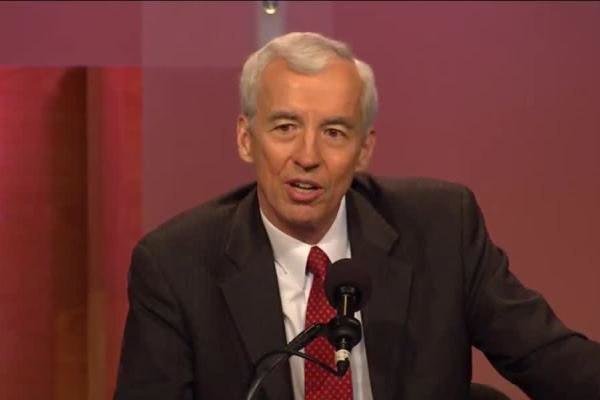JCPOA model has less attractive aspects from Saudi point of view: Pillar

TEHRAN – Professor Paul Pillar, who was CIA intelligence analyst for 28 years, tells the Tehran Times that “The Saudis will argue that they should get anything that Iran got in the JCPOA, and that includes being free to do their own enrichment of uranium.”
Pillar also says, “But the JCPOA model also has less attractive aspects from the Saudi point of view, including no reprocessing of plutonium (with spent reactor fuel to be shipped out of the country) and a highly intrusive international inspection regime.”
Following is the text of the interview:
Q: After few years, U.S. administration announced will nuclear agreement with Riyadh. Why U.S. convinced to restart negotiation for nuclear agreement?
A: The Saudi government considers development of a nuclear program important, and the U.S. government considers its relationship with Saudi Arabia important. That is why the United States has agreed to negotiate on the matter. There is no separate U.S. national interest in seeing Saudi Arabia develop a nuclear program. Riyadh, not Washington, is driving this issue.
Q: Two Kingdom’s desire in its nuclear pan are enriching uranium and reprocessing plutonium. Will U.S. accommodate the Riyadh in these issues?
A: It remains to be seen how far the Trump administration (or the U.S. Congress) is willing to go in accommodating Saudi Arabia's desires on this subject. U.S. negotiators probably will resist for a significant time making concessions about either enrichment or reprocessing. The United States will be more inclined to drag out the negotiations; the Saudis will try to find ways to reach an agreement more quickly. The United States might be less inclined to make concessions regarding reprocessing than to concede on enrichment, given that under the JCPOA, Iran does enrich but does not reprocess. However, given Trump's antipathy toward the JCPOA, it is not clear how much this consideration will matter to him.
Q: Some argue that if U.S. do not cooperate with Saudi in its nuclear program, Russia and China may do it and this led to reducing American nuclear influence in the region. What is your opinion?
A: This is a commercial issue, in the sense that if a nuclear agreement is reached, U.S. manufacturers of reactors and other equipment will make sales to Saudi Arabia, but in the absence of an agreement, Saudi Arabia may instead make purchases from Russia or China. The Saudis certainly will play up this possibility as a negotiating tactic, although there is some question as to whether Russian or Chinese equipment would meet Saudi needs. Beyond the commercial considerations, there is not necessarily much at stake regarding influence. Both Russia and China are parties to the JCPOA and did not want Iran to become a nuclear weapons state. They also have no interest in Saudi Arabia becoming a nuclear weapons state, and so they, as well as the United States, would favor limitations and safeguards in any new nuclear deal they might reach with Saudi Arabia.
Q: Which model for Saudi’s nuclear plan are likely, JCPOA or U.S. agreement with United Arab Emirates?
A: Probably neither existing agreement will be duplicated exactly in the case of Saudi Arabia. The Saudis will argue that they should get anything that Iran got in the JCPOA, and that includes being free to do their own enrichment of uranium. But the JCPOA model also has less attractive aspects from the Saudi point of view, including no reprocessing of plutonium (with spent reactor fuel to be shipped out of the country) and a highly intrusive international inspection regime. Another aspect of the JCPOA model is that it involves no U.S. assistance in developing the Iranian nuclear program--only in limiting that program. The United States should be able to argue that if the Saudis want as much U.S. assistance and U.S.-made equipment as the UAE got, then they also will have to accept the same kind of limitations as the UAE is subject to.
Leave a Comment